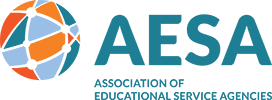In recent years, the rapid advancement of generative artificial intelligence (AI) has sparked a revolution across various sectors, with K-12 education firmly in the center of this transformative wave. As AI-driven tools become increasingly sophisticated, their potential to reshape K-12 education has become a topic of intense debate and exploration. But, to date, few states have implemented legislation to assist or support educators and districts in navigating the AI landscape in schools.
The integration of AI in K-12 classrooms presents a complex landscape of challenges and opportunities. On one hand, concerns about student privacy, plagiarism, and the ethical use of AI have led some school districts to approach these technologies with caution. On the other proponents highlight AI's potential to revolutionize personalized learning, benefiting both students and educators alike.
This article seeks to identify, in abbreviated fashion, the efforts of some states to tackle this complex set of issues.
A review of online sources including the National Governor’s Association, the National Conference of State Legislatures, the Council of State Governments, Education Commission of the States and the Center for Reinventing Public Education revealed that 18 states have implemented some type of legislation or administrative policy related to AI and its use broadly speaking. These states include: Colorado, Utah, California, Connecticut, Delaware, Illinois, Indiana, Iowa, Louisiana, Maryland, Montana, New York, Oregon, Tennessee, Texas, Vermont, Virginia, and Washington.
Those directly impacting K-12 education, however, are fewer in number with 11 states passing legislation. Leading examples identified by Education Commission of the States include the following:
- Colorado SB22-113 requires government agencies, including institutions of higher education, that use or intend to use facial recognition services, to file with its reporting authority an intent to develop, use or procure facial recognition services. Public schools, school districts and charter schools are prohibited from contracting for facial recognition services until July 1, 2025.
- Illinois H.B. 3563 establishes the Generative AI and Natural Language Processing Task Force, which includes representation from the K-12 and higher education agencies and tasks the group with developing model policies for AI use by students in and out of the classroom.
- Dakota H.B. 1003 requires a legislative management study during the 2023-24 interim session addressing the potential impacts of AI. The study must include findings and recommendations on the effects of AI on student learning.
- Utah S.B. 96 (2020) requires the Board of Regents to develop and oversee a deep technology talent initiative that includes providing funding for expanded programs. Deep technology may lead to new products and innovations related to artificial intelligence, augmented and virtual reality, robotics and other areas.
There is also legislation still pending in some states like Tennessee. Tennessee has introduced legislation requiring school districts to develop and implement AI policies. The legislation mandates that public K-12 districts and charter schools establish AI use policies and submit them to the state Department of Education for approval by July 1, 2024. This policy aims to ensure that AI is used responsibly and effectively in educational settings
Other states have sought to take administrative action, utilizing existing authority to support districts with AI policy development and implementation. These include, but are not limited to, the following leading examples:
- Georgia is piloting an elective course for middle school students called Living and Working with Artificial Intelligence. Initial findings discuss the collaborative curriculum development process, the role of professional development and supports for teachers, and best practices for engaging students. Similarly, Georgia State University claims to be among the first institutions to develop inexpensive AI teaching assistants.
- Ohio, under the leadership of Lieutenant Governor Jon Husted has launched an AI toolkit. The toolkit, developed in partnership with non-profit aiEDU, is a practical guide for developing policies and recommendations in response to the proliferation of AI tools. The goal of the toolkit is to help prepare all Ohio students for jobs in an increasingly AI-driven world. The toolkit features several resources for everyone in Ohio’s school communities, including district administrators, school leaders, educators, and family members. From an introduction to AI for educators and parents to guidelines and templates for superintendents, this toolkit seeks to help schools develop plans and policies to best fit their learning community.
Seven state governors (California, New Jersey, Oklahoma, Oregon, Pennsylvania, Virginia, Wisconsin) have also signed executive orders establishing state-level task forces or commissions to student the potential effects of generative AI on state and local government, including K-12 education, and to issue related policy and funding recommendations for future implementation.
As state-level policies continue to evolve, it is crucial for education leaders to remain vigilant and actively engaged in the legislative process. By closely monitoring policy developments and fostering open dialogue with legislators and executive branch agencies, educators can help shape AI policies that prioritize student welfare, educational equity, and pedagogical effectiveness. These policies should respect local control and be reflective of individual community priorities and values. The landscape of AI in education is dynamic, and ongoing collaboration between policymakers and education professionals is essential to ensure that AI integration enhances rather than disrupts the learning experience. As we navigate this transformative era, the proactive involvement of education leaders in policy discussions will be instrumental in creating a balanced, ethical, and innovative AI-enabled educational environment that prepares students for the challenges of tomorrow. ESA leaders are uniquely positioned as conveners, facilitators, and brokers to make meaningful connections and lead this conversations.
